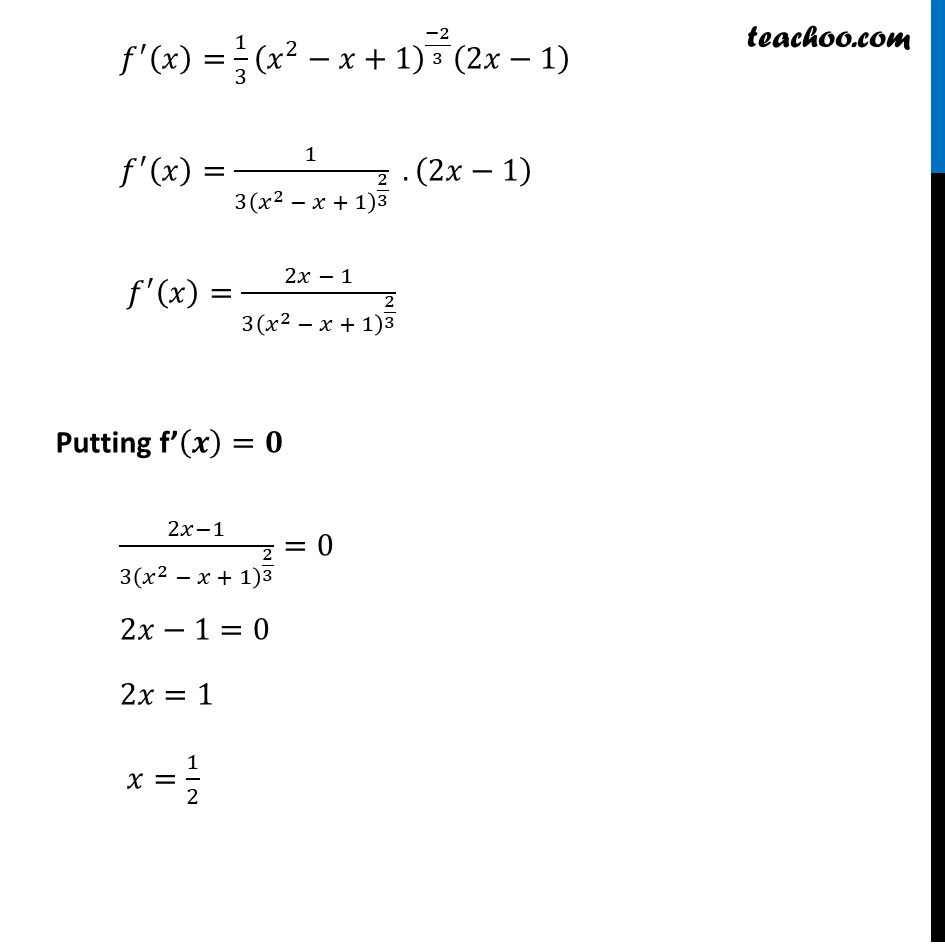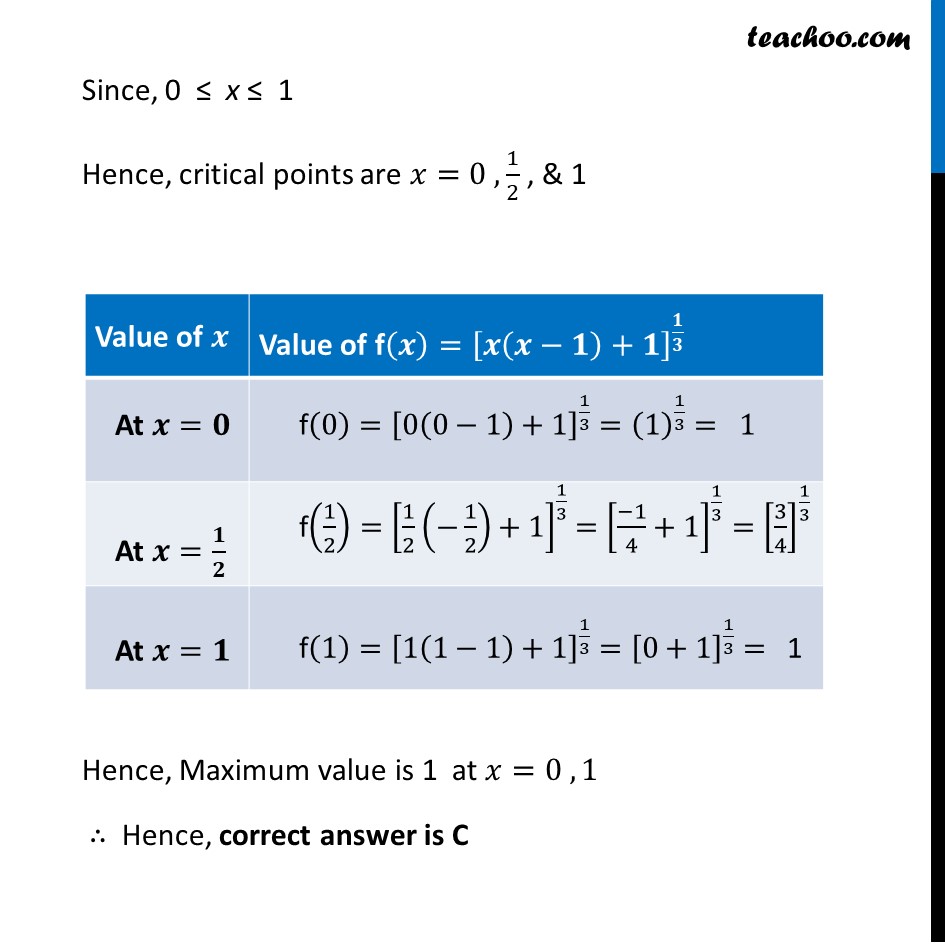![Ex 6.3, 29 (MCQ - The max value of [x(x - 1) + 1]^1/3 is (a) (1/3)^1/3 - Ex 6.3](https://cdn.teachoo.com/2d0fcfdf-409f-4df0-b906-2083f0b6886e/slide75.jpg)


Ex 6.3
Last updated at Dec. 16, 2024 by Teachoo
![Ex 6.3, 29 (MCQ - The max value of [x(x - 1) + 1]^1/3 is (a) (1/3)^1/3 - Ex 6.3](https://cdn.teachoo.com/2d0fcfdf-409f-4df0-b906-2083f0b6886e/slide75.jpg)


Transcript
Ex 6.3, 29 The maximum value of 〖[𝑥(𝑥−1)+1]〗^(1/3) 0 ≤ x ≤ 1 is (A) (1/3)^(1/3) (B) 1/2 (C) 1 (D) 0 𝑓^′ (𝑥)=1/3 (𝑥^2−𝑥+1)^((−2)/3) (2𝑥−1) 𝑓^′ (𝑥)=1/(3(𝑥^2 − 𝑥 + 1)^(2/3) ) .(2𝑥−1) 𝑓^′ (𝑥)=(2𝑥 − 1)/(3(𝑥^2 − 𝑥 + 1)^(2/3) ) Putting f’(𝒙)=𝟎 (2𝑥−1)/(3(𝑥^2 − 𝑥 + 1)^(2/3) )=0 2𝑥−1=0 2𝑥=1 𝑥=1/2 Since, 0 ≤ x ≤ 1 Hence, critical points are 𝑥=0 ,1/2 , & 1 Hence, Maximum value is 1 at 𝑥=0 , 1 ∴ Hence, correct answer is C